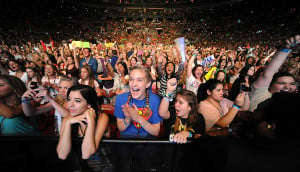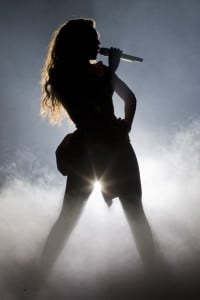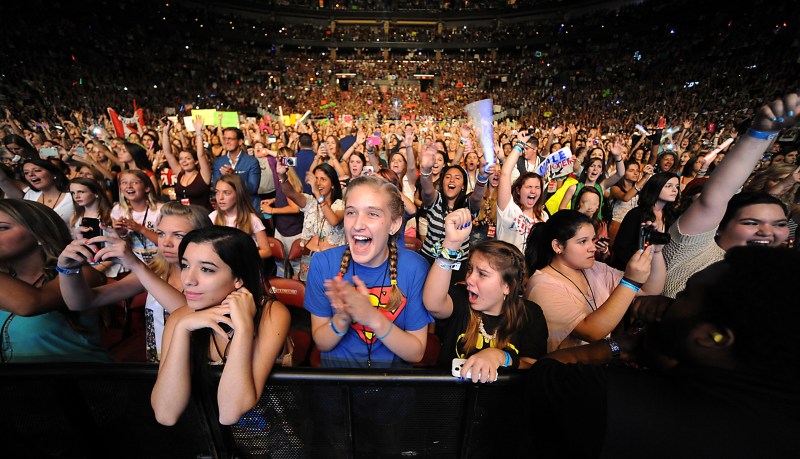The contemporary music scene is the world’s truest democracy. Together, we created Justin Bieber — let’s not forget that his debut was a YouTube video uploaded by his mother, and the denizens of the internet (preteen girls and skeptics alike) catapulted him into international stardom.

This type of crowd-sourced A&R is extremely empowering. The question is: will we use this for good or for evil?
To the dismay of hipsters everywhere, pop audiences are showing a taste for all things alternative. Neon Trees currently has a song on the Billboard Pop Charts. So does fun., Alex Clare, and PSY. And perhaps more tellingly, pop stars are responding to this appetite. (Think: Britney Spears’ dubstep-sprinkled album.)
Today’s pop stars have to be weary of their newly worldly and opinionated listeners. The greatest cautionary tale is Lady Gaga’s sophomore album. Oblivious to — or disdainful of– the growth of Electronic Dance Music (EDM) in the early aughts, Gaga released an album that essentially stylized glam rock. Everyone bought “Born This Way” for 99 cents and promptly forgot about it.
The inattentive listener will claim that the public’s desire for dance music and good times spurs the mediocrity of a lot of pop music, but the relationship between pop and dance is hardly a new phenomenon. People have been dancing to pop since back when that meant waltzing to Schubert (predictably, lots of his contemporaries hated on him).
It boils down to the fact that listeners have genre-specific aesthetic expectations: punk rock calls for authenticity, funk calls for bass lines. But pop, maybe due to the sheer expansiveness of the genre, is harder to pinpoint. Cecil Frena of Born Gold provides some interesting perspective on the process of creating pop music: “Making pop music requires this particular kind of confidence that is fascinating to me — it takes an almost irresponsible self-assurance for a self-aware person to be able to vocalize “ba da ba” or stick to a conventional song structure or whatever.”

Pop stars begin their careers with little credibility but lots of cultural capital. They can’t expect to be coddled like Pitchfork’s handpicked treasures. They can’t afford pretension. Their songs have to be big, infectious, catchy. This “ba da ba” attitude leads to the Black Eyed Peas’ lobotomized “Boom Boom Pow” but also drives the unpretentious genius of Stevie Wonder’s “Livin’ For The City.”
Pop artists can be smart and introspective, but they always must have their audience in mind: an added challenge that “real musicians” don’t have to worry about. There are plenty of talented pop stars today that are doing just this. Robyn has specialized in heartbreak electro-pop, channeling romantic disappointments onto the dance floor with hits like “Call Your Girlfriend” or “Dancing On My Own.” Adele’s sincerity turned the meditative “21” into a bestseller, and Beyonce’s love-struck “4” is full of eargasms.
John Seabrook of the New Yorker asks in a piece about Rihanna’s songwriting team: “How did mainstream rock, once the source of the catchiest hooks in popular music, become robotic, unimaginative and predictable, while pop, always the soul of artifice, came to seem creative, experimental and alive?”
Pop triumphed precisely because it is the soul of artifice. It’s unassuming, self-aware, full of promises, eager to please — our music democracy’s most honest politician.
